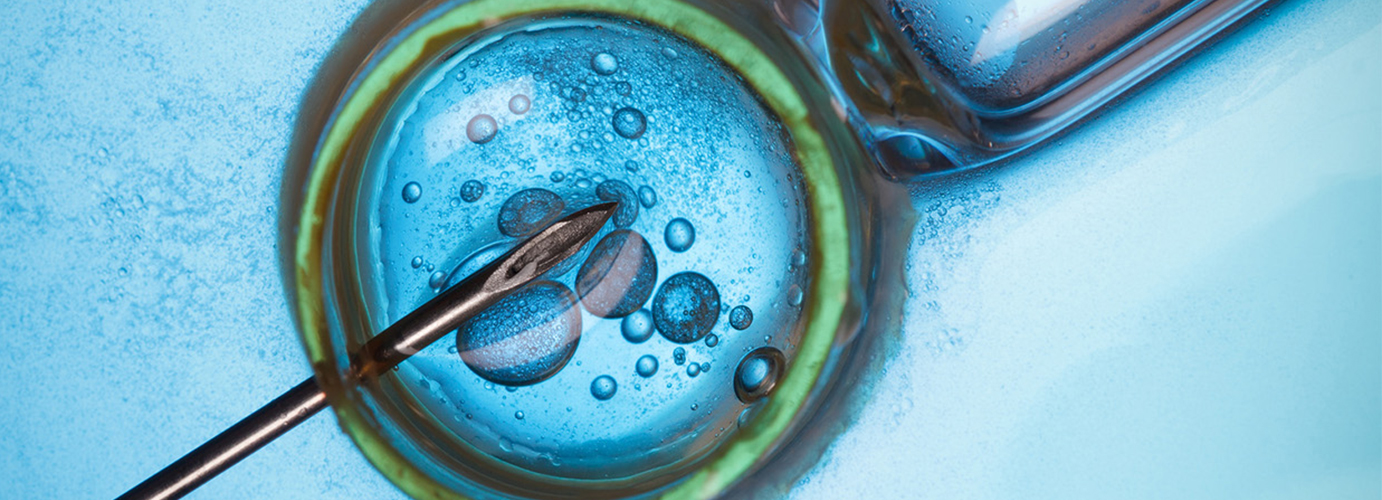Intracytoplasmic Sperm Injection
Overview
Intracytoplasmic sperm injection or ICSI is one of the most effective forms of micro-manipulative assisted reproductive techniques developed to treat severe male factor infertility. ICSI is touted as a “perfected approach” that is used to enhance the fertilization phase merely by injecting a single sperm into the matured egg during the IVF procedure. Once the egg is fertilized it is transferred into the woman’s uterus to initiate pregnancy. If you are considering ICSI as an optional add-on to your treatment, talk to your fertility provider for reassurance. With ICSI it is possible for even men with little or no sperm to father their own biological child! No wonder, ICSI is regarded as the single most fundamental breakthrough in the field of reproductive medicine!
The Procedure
The first step is the retrieval of egg from the woman. Ovarian stimulation drugs are administered to promote the growth of several follicles and ensure that a few viable eggs are present for retrieval. The response of the ovaries is monitored with ultrasounds and/or blood tests. When the eggs are ready for collection your fertility specialist will retrieve the eggs from the follicles, which will be used for the ICSI attempt. A sample of your partner’s sperm will also be required on the day of egg collection. For men who have a hard time ejecting sperm when ejaculating, the sperm is retrieved through a process known as testicular retrieval. A sperm wash is done to separate the sperm from the seminal fluid. Then a single sperm is injected into each egg to assist fertilization using a fine micro-manipulation equipment. The best fertilized eggs that are most likely to survive will be implanted into the uterus through in vitro fertilization. If everything goes well, an embryo implants in your uterine wall and develops into a fetus.
The Symptoms
The typical indications for an Intracytoplasmic sperm injection are as follows
- Men have a high percentage of weird shaped sperms
- Men have trouble in achieving an erection and ejaculating, due to diabetes or a spinal cord injury
- Women suffer from severe endometriosis or polycystic ovarian syndrome that does not respond to conventional treatments
- Severe male factor infertility is the cause for unsuccessful conception, either due to low sperm count or poor sperm motility
- Men’s sperm cannot get to the egg or can get to the egg but for some reason cannot fertilize it
- Couples who suffer from “unexplained infertility”
The Eligibility
Intracytoplasmic sperm injection is ideal for
- Couples who have experienced difficulty conceiving naturally for over a year
- Couples who have experienced repeated fertilization failure in previous IVF attempts
- Men who have experienced failed vasectomy reversals
- Couples who have realistic expectations about the nature of the procedure and what it can achieve
The Risks Involved
The most common risk associated with ICSI treatment is multiple pregnancy, which occur in 1 in 4 pregnancies. Hyperstimulation syndrome, enlarged ovaries and fluid build-up in the abdominal cavity, are also witnessed in about 2-5% of ICSI cycles. ICSI can result in an increased risk of sexual chromosomal abnormality disorders. Certain genetic and developmental defects are noticed in a small number of children born using this treatment. There is also an increased risk of miscarriage as it uses sperm that would not otherwise be able to make it to an egg. ICSI can lead to transmission of genetic problems, wherein a boy child conceived by ICSI technique may inherit his father’s infertility.
The Impact
ICSI procedure offers a higher success rate than the conventional IVF procedures. When used with IVF and when the eggs are viable and of good quality, ICSI can be highly effective. This technique is indeed used to improve the efficacy of the sperm in men with male factor infertility. Indeed, ICSI may give you and your spouse a chance of conceiving a genetic child when other options are closed to you.
ICSI is currently the most successful treatment for male infertility. Before the introduction of ICSI in the year 1992, men with fertility issues were left with very few options. ICSI has indeed helped thousands of couples who, in the past, wouldn't have been able to conceive a child. ICSI is a boon for aspiring fathers with low sperm counts! ICSI – a near miracle of male infertility treatment! If you are about to embark on an ICSI fertility treatment, talk to your fertility specialist today and get the best advice for your individual situation. ICSI - a huge step forward in the treatment of male infertility!






